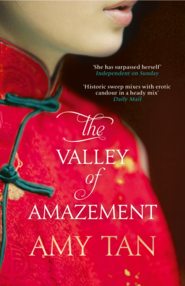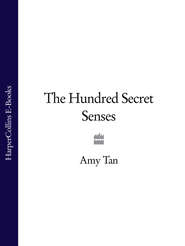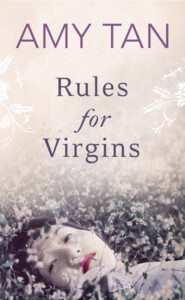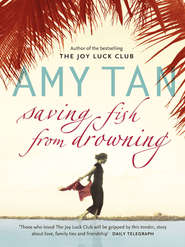По всем вопросам обращайтесь на: info@litportal.ru
(©) 2003-2024.
✖
The Opposite of Fate
Настройки чтения
Размер шрифта
Высота строк
Поля
I will relate only one more dream. It was the last.
On Lou’s birthday that year, the trial ended, with a conviction on two counts. First-degree robbery. First-degree murder. That night, I dreamt that I met Pete in a garage, a rather prosaic location for a farewell meeting. He told me this was the last dream, now that the trial was over. I protested, “These are my dreams. I get to decide when they end.” Pete ignored what I said, and went on: “You’re going to meet my friend Rose—”
“Rose!” I sneered. “Fat chance. She hates me.” When I had called her months before to tell her Pete was dead, she had been curt almost to the point of rudeness. Then again, I had been the same with the messenger who delivered the news to me.
“Rose is going to become very important to you,” Pete said. “She’s a writer, and she’ll be helpful to you when you become a writer.”
“Who said I was going to be a writer?”
“That’s all I wanted to say,” Pete told me, and then, as if going down to the corner store, he left me there.
After that, I still had dreams about him, but they were different, nothing at all like the dream-lessons. The new dreams conveyed the full horror of his death, for in them he was not dead, as I had feared, but alive, as I had hoped. Having survived near-strangling, he was brain-damaged, confused and suspicious, preferring to live as a beer-drinking recluse, unsure of who he was and uninterested in finding out.
Each year for seven years, on the anniversary of Pete’s death, I lost my voice. It must have been a psychogenic gesture for the horror I could not talk about. And yes, eventually, Rose and I did connect with each other, tentatively at first, through brief letters, and then in lengthy missives, both of us grasping to understand the transcendental experiences we have had since his death.
If you’ve followed this story so far, you have already understood that Rose is indeed a writer, and that she was the first person to encourage me to write fiction, suggesting what I might read for inspiration and to which little magazines I might send my first attempts.
Enough time has passed that I can now more reasonably assess that period after Pete died. I have considered that those dreams were the subconscious by-product of trauma and grief, or the delusional thinking that enables a person to cope with horror. The metaphors were ones I have had all along, and through the need to survive, I brought out their meanings. Whatever they sprang from, the dreams were a lot more cost-effective than psychoanalysis. As to the counseling voice of Pete, guiding me toward the job with children, that was my own, pushed by fear of failure to the point that I made myself finally hear it. The coincidence of the $383? Well, that’s odd, and hard to explain, except to say that when you are looking for coincidences, you will surely notice them. There are rational answers for everything. Sometimes I think about what they might be.
And yet no matter what these dreams and coincidences were, everything that happened during those months from my birthday to Lou’s had a wondrous effect on me, on the shape of my life. It pushed me, enlarged my outlook, and sent me searching for what I should believe in. Does it matter what the origins were?
Today I am neither a believer nor a skeptic. I am a puzzler. I still puzzle over what Pete’s story presents: what I fear, what I dream, what I believe. I ask myself: What’s real? What’s important? What do I gain in believing one reality over another? What do I lose? And if we understand the mysteries of the universe, if they end up being explained entirely by mathematics, as Pete said they could be, will they still bless us with the same amazing joy?
FAITH (#ulink_638d2410-931b-5a5b-9ded-8cc47f8d9981)
These are remarks I gave at the memorial of my editor, the late, great Faith Sale, who died on December 7, 1999.
The first time I talked to Faith on the phone, I was a publishing neophyte. I didn’t know what serial rights were. I thought Faith’s remark about “interest from the clubs” meant that places like Club Med might stock The Joy Luck Club in their beachfront stores. The year was 1988, and after talking about the book I was finishing and other literary concerns, I told Faith I was interested in attending a national book convention with a friend who had invited me. Faith immediately cut me off: “Oh, no! You shouldn’t get caught up in all those publishing parties. They’ll ruin you as a writer.” Parties? I didn’t know that book conventions held parties. Frankly, I was interested in going because my friend said I could score a lot of free books.
It wasn’t until after I got to know Faith well that I realized how ironic it was that she warned me away from parties. Faith was, after all, the ultimate publishing party girl. And those who knew her well also know that I can say this without detracting whatsoever from her reputation as a serious and hardworking literary editor. In later years, whenever I went to the American Booksellers Association convention with Faith, it took us two hours to go from one hall to the next. She knew everybody, had to talk to everybody, and I felt like the recalcitrant kid impatient to make her way to the amusement rides. She was late to almost everything as a result, late even to her own passing from a disease that commonly took people much earlier. And thank God for that. Thank God for her stubbornness, for her need to control every last detail before she could let go.
If Faith had stayed with us longer, I think she would have been seduced one way or the other by the Internet, as had been my plot. I know she touched her fingers to the keyboard at least a few times, once to send me an e-mail, other times to play solitaire and Freecell. And had she dabbled further, I think she would have discovered eBay, the great cyber bargain basement. We shared that—the art of the cheap deal. We used to go around the corner from her apartment on West Eleventh Street to an outlet called SubPrice, where we could buy stretch-velvet tops and leggings for five bucks.
That love of a bargain was still very much in evidence the day before her final operation. I was telling her that I, a New York carpetbagger, was going to hold a fund-raiser in my SoHo loft for a certain political candidate, about whom Faith held, shall we say, ambivalent feelings. The fund-raiser would probably take place in March, some four months away. “Do you want to come?” I asked, and I tried to sound casual. In hearing her answer, I figured I could gauge how she felt about the upcoming surgery and her chances of surviving it. Faith immediately said, “Of course. But I’m not going to pay.”
In Faith, I had not only an editor and a cohort in bargain shopping but a mentor and a friend, someone who knew my best intentions and intuitions as a writer and how these fit in with the rest of my life. She knew all the details of what I did, whom I saw, what happened on my vacation, what my mother said, what she didn’t say. Faith also called me during the last hour that my mother was alive.
Whenever I gave Faith something to read, she’d ask me what I wanted from her as an editor. “Keep me from embarrassing myself in public,” was my usual answer. And she did keep me from exposing the glitches in my prose, but she also prodded me to go deeper, to be more generous in the story I had to tell, to not hold back, to show what was most important in my life and on the page. She had an unerring sense of what mattered—to me. She could help me find it, though there were many ways in which we differed in taste and opinions. Olives, for example. She could not abide any dish littered with canned olives, a favorite of mine. And music—who would want to assault his or her ears with anything less than classical music or Broadway musicals or the rocker Michael Parrish, her son-in-law? Then there was the matter of ghosts. I was raised with them. She was not. But here Faith was diplomatic. She indulged me. She listened with genuine interest when I told her about unseen visitors whistling in my kitchen, about the TV’s turning on by itself, about my version of ghostwriters, who, by the way, also provide research and editing on request. She was not going to argue scientific logic with me, since, delusion or not, ancestral spirits and reincarnation increased my material multifold. And for my part, I liked to remind Faith now and then that she, oh esteemed one, had after all served as editor for George Anderson, the world-famous talk-show host to the dead. And more than once I recalled for her benefit the time my mother had written her a note thanking her for “the book” and for helping her feel closer to “the other side.” Faith was quite touched; she thought that my mother was referring to The Joy Luck Club and that her own help in publishing it had brought my mother fond memories of her family. I had to break the news to Faith that my mother was talking about George Anderson’s book We Don’t Die. I’m not done tormenting Faith about this. I plan to have regular seances with her in which we discuss how and why she was wrong in her opinion about an afterlife.
She was also wrong in one thing about me as a writer. She believed for some reason that writing came easily to me, that words poured onto the page with the ease of turning on a faucet, and that her role was mostly to help me adjust the outpouring toward the right balance. That belief had so much to do with her confidence in me. And I guess that is the role of both an editor and a friend—to have that confidence in another person, that the person’s best is natural and always possible, forthcoming after an occasional kick in the butt.
I remember the proudest moment I had as her friend. We were at a medical clinic, and Faith was having her blood drawn. The nurse looked at Faith, then scrutinized me and said without any hint of the absurd, “You two are sisters, aren’t you?”
And Faith looked at me without any hint of the absurd and said: “Yes. Yes we are.”
CHANGING THE PAST (#ulink_18c8794a-7b35-5039-98b8-fedee7ce5f95)
If you can’t change your fate, change your attitude.
• The Kitchen God’s Wife
To the missionaries, we were Girls of New Destiny. Each classroom had a big red banner embroidered with gold characters that proclaimed this. And every afternoon, during exercise, we sang our destiny in a song that Miss Towler had written, in both English and Chinese:
We can study, we can learn, We can marry whom we choose. We can work, we can earn, And bad fate is all we lose.
• The Bonesetter’s Daughter
LAST WEEK (#ulink_043d3592-cd1d-56eb-a173-bd4b6c1e3f7e)
In the last week of my mother’s life, we were all there—my three half sisters and their husbands; my younger brother, John, and his fiancee; my husband, Lou, and I—gathered around the easy chair in which she lay floating between this world and the next. She looked like a waif in an oarless boat, and we were her anchors, keeping her from leaving us too soon for the new world.
“Nyah-nyah,” she moaned in Shanghainese, and waved to an apparition on the ceiling. Then she motioned to me to invite her guests in and bring them refreshments. After I indulged my mother these wishes, I began to write her Chinese obituary, with the help of my half sisters, daughters from my mother’s first marriage. It was a task that kept our minds focused, unified us, made us feel helpful instead of helpless.
“Daisy Tan,” I started to write, “born Li Ching.”
“Not Li Ching,” someone interrupted. “It was Li Bingzi.” That was Yuhang speaking, my sister from Shanghai. “Li Bingzi was the name our grandmother gave her when she was born.”
How stupid of me not to know that. I had always thought Bingzi was just a nickname my mother’s brother called her. Yuhang watched me write her important contribution to the obituary. She is sixteen years older than I, a short, ever-smiling, chubby-faced version of my mother. She speaks no English, but has read my books in translation.
“Born Li Bingzi,” I duly put down in English letters, “daughter of Li Jingmei …” And then Jindo, my second-eldest sister, chided in Chinese: “No, no, Grandma’s last name was not Li. Li was the father’s side. The mother’s side was Gu. Gu Jingmei.” Jindo, who most resembles our mother, proudly watched me write her addition.
By now, I sensed the ghost of my grandmother in the room. “Ai-ya!” she was lamenting. “What a stupid girl. This is what happens when you let them become Americans.” I imagined other wispy-edged relatives, frowning and shaking their heads.
My third-eldest sister, Lijun, picked up the baton and added to the list of corrections: “After our grandmother die,” she said in passable English, “our mother receive the name Du Lian Zen, to show she is adopt by Du family.” Lijun was the one I relied on for rough translations, her English being on a par with my Chinese, the combination of which sometimes provided hilarious if not miserable renditions of what was actually meant. Her husband, Yan Zheng, wrote “Du Lian Zen” in Chinese characters, with the English next to that in the precise block script typical of architects.
“For Ma’s school name,” Yuhang continued in Chinese, “she chose Du Ching, the same name she kept after she married Wang Zo.” I have long noted that my sisters never call this man “our father.” They knew all too well that our mother despised “that bad man,” as she called him, and they should act as if the paternal connection were accidental at best.
“Do you know why my father renamed her Daisy?” I asked my sisters. They were eager to hear. “Well, there was a funny song about a woman named Daisy and a bicycle built for two. In it, the man asks the woman, Daisy, to marry him.”
“So our mother liked to ride a bicycle?” Yuhang asked.
I thought about this. “No,” I answered.
“Did your father give her a bicycle when he asked to marry her?”
I laughed and shook my head. My sisters looked puzzled and confirmed among themselves that American names have no meanings.
I realized I had never told my sisters about the name Daisy Tan Chan—Chan being the name our mother took when she married for the third time, in her seventies; a year later she had the marriage annulled and reverted to Daisy C. Tan. But why bring that up now? As to her fourth “marriage,” to T. C. Lee, the dapper eighty-five-year-old gentleman whom our family in Beijing feted when he and our mother “honeymooned” in China, well, the truth was, she and T.C. never really married.
“What!” cried my sisters.
“It’s true,” I told them, to explain why I was not mentioning him in the obituary. “They were living together and she was too embarrassed to say they were lovers, so she made me lie and tell Uncle they were married.” My sisters guffawed.
My mother’s many names were vestiges of her many selves, lives I have been excavating most of my own adult life. At times I have dreaded that I might stumble across evidence of additional husbands and lovers, more secrets, more ghosts, more siblings. I had once thought I was the only daughter, the middle child, a position I took to have great psychological significance. I then discovered I was really the youngest of five girls, one of whom had died at birth. Our mother had three sons as well, one who died at age two or three, and another, my brother Peter, who died at age sixteen. With all taken into account, I was demoted to Number Seven of eight children.
There was also a great deal of confusion about my mother’s age. She had one birth date based on the Chinese lunar calendar. By that method, she was considered one year old the day she was born. My mother had further explained to me that when my father transferred her Chinese age to a Western one, he made her too young—writing on her visa that she was born on May 8, 1917, instead of May 9, 1916. The age followed her into her naturalization papers, onto her Social Security card, all her official records. This was not a problem until she was about to turn sixty-four. That was when she told me she was really almost sixty-five. She insisted she knew for sure that she was older than her American age, because she was born in a Dragon Year, 1916, just as I was born in a Dragon Year thirty-six years later. There was absolutely no way she could confuse whether she was a Dragon, none whatsoever. My mother fretted over this mistake day after day, until my husband untangled bureaucratic knots and set the record straight just in time for her to retire and start collecting Social Security when she truly turned sixty-five.
But even that was not the end to her ever-changing age. My sister Jindo said that the international Chinese-language newspaper wanted to report her as being eighty-six instead of eighty-three, to account for the “bonus years” she had earned for living a long life. All the confusion about her age, her three or four marriages, her many names, and the order in which her children, living and dead, should be listed led us to nix the idea of a Chinese obituary. It simply wouldn’t look proper if we told the truth.










